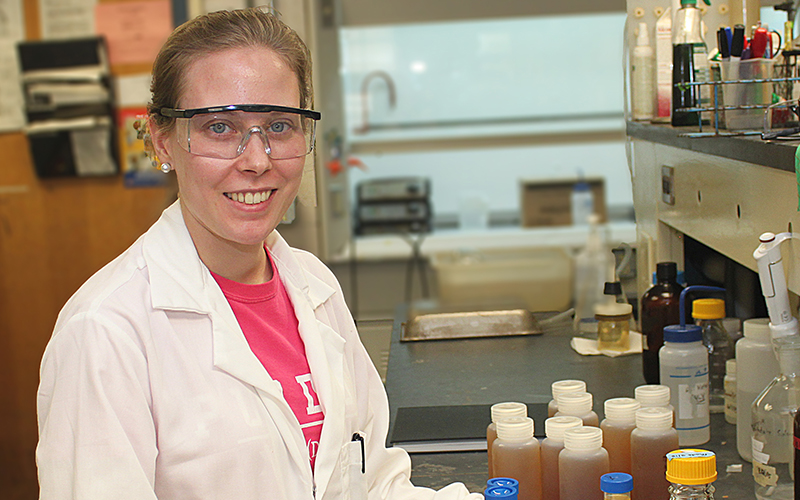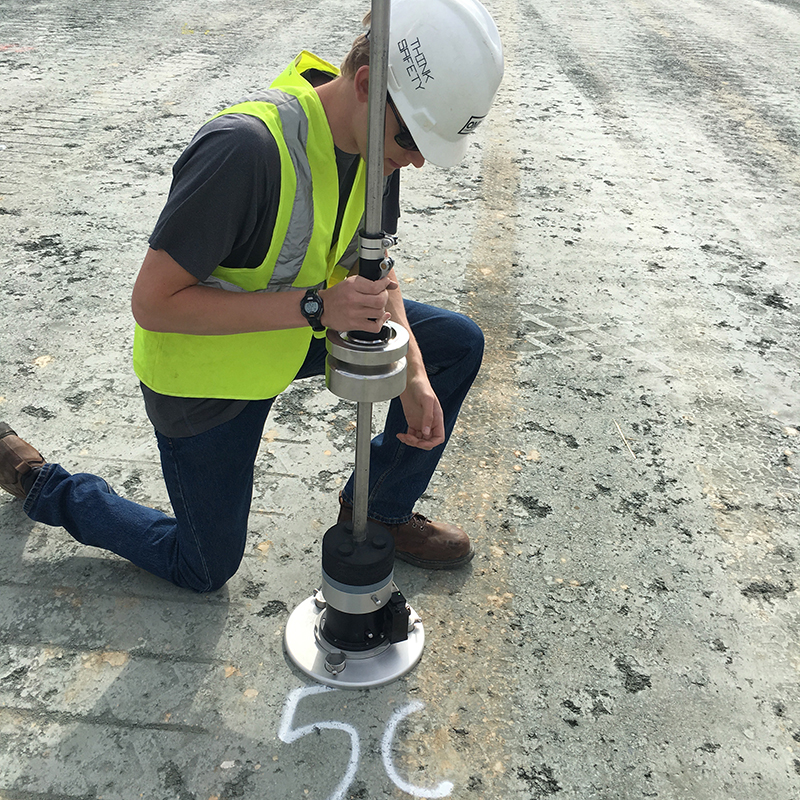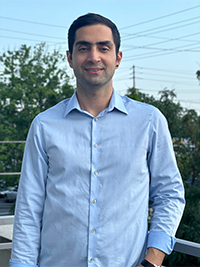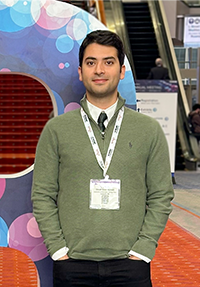CEE winners recieve a plaque and cash award—$250 for the master's award and $500 for the doctoral. They will also be nominated for the Clark School competition, where they will be evaluated by a college-wide committee along with other senior researchers in the local area. The winners at the college level will win an additional cash award and plaque.
Apply today
Deadline: May 16, 2025 by 5:00pm
For consideration, submit the following to Anna Damm at adamm1@umd.edu.
- A single PDF file (not to exceed 14 pages) containing:
- Two-page curriculum vitae
- One-page abstract of master or doctoral research
- One scholarly research written sample (not to exceed 10 pages)
- One-page list of research awards/accomplishments (e.g. best paper awards, graduate fellowships, patents, etc.)
- A single video file or link for a 10-minute presentation in which the student discusses his or her research. One recommended way to do this is to use Zoom and record a voice-over while sharing a slide deck.
- See updated guidelines below, under Judging Criteria.
- A separate PDF file containing an advisor endorsement/nomination letter indicating the student’s main contributions to his or her field of research. The letter should also confirm that the student is graduating in the calendar year 2025 and has a GPA of 3.5 or higher.
Judging Criteria
When preparing the presentation and writeup, it is important for the nominees to demonstrate strong communication skills, considering that the judges come from a variety of technical backgrounds in engineering.
Oral presentation (40%)
Each nomination must include a single video file or link for a 10-minute presentation in which the student discusses his or her research.These presentations, along with students’ scholarly writings, will be judged based on:
- Technical content
- Importance to the field
- Style and clarity
- Completeness
Video presentation guidelines:
- The opening part of the presentation should be about 2-4 minutes and be targeted for a general STEM audience in an appealing and accessible way.
- The style should be similar to the Three-Minute Thesis (3MT) competition, and should addresses the general context, importance, and impact of a nominee's research.
- Resources and past samples of engineering 3MT presentations can be found here.
- The remainder of the 10-minute presentation should focus on key details of the research.
Scholarly writings (40%)
Nominated students should provide a writing sample from the following:
- Masters Award Nominees
- M.S. scholarly paper
- A summary of the M.S. thesis
- The M.S. thesis
- Published or submitted conference or archival journal manuscripts describing work that forms the basis of the student's masters research for which the student is the primary author,
- Doctoral Award Nominees
- Doctoral Research
- Sample of Dissertation
- Published or submitted conference or archival journal manuscripts describing work that forms the basis of the student's doctoral research for which the student is the primary author.
Writing sample will be judged based on:
- Technical content
- Importance to the field
- Style and clarity
- Completeness
Awards and accomplishments (20%)
Emphasis will be placed on awards and accomplishments that are the results of the student’s graduate research. The student may provide additional evidence of scholarly accomplishment as below:
- List of publications
- List of awards and fellowships
- Evidence of GPA via an informal transcript
2024 Ph.D. Winner
Khashayar Aghilinasrollahabadi received the Best Doctoral Research Award for his dissertation, Enhancement of Biological Phosphorous Removal (BPR) in Wastewater Treatment.
Read More
2024 M.S. Winner
Saeed Saleh Namadi won the Best Master's Research Award for his thesis, Using Geographically Weighted Models to Explore Temporal and Spatial Varying Impacts on Commute Trip Change Due to COVID-19.
Read More



